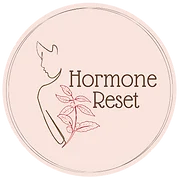Lupus, officially known as Systemic Lupus Erythematosus (SLE), is an autoimmune disease where the immune system turns against the body, attacking healthy tissues and organs. This results in widespread inflammation, joint pain, fatigue, and organ damage. But what if an overactive immune system is just a symptom? While the root cause is completely different ?
Why Lupus is More Than Just an Autoimmune Disease?
Most conventional treatments focus on suppressing the immune system, using steroids and immunosuppressants to control flare-ups. While this can help manage symptoms, it doesn’t address the underlying causes, one of which is hormonal imbalance.
How Hormonal Imbalance Triggers Lupus?
Women are nine times more likely to develop lupus than men, which hints at a strong hormonal connection. The delicate balance of estrogen, cortisol, thyroid hormones, and insulin play a key role in either soothing or igniting the immune system.
Hormones That Worsen Lupus
- Estrogen Dominance – High levels of estrogen can over-stimulate the immune system, leading to increased autoimmunity and inflammation.
- Cortisol Dysregulation – Chronic stress leads to fluctuating cortisol levels, weakening immune tolerance and worsening lupus symptoms.
- Thyroid Dysfunction – Many lupus patients have undiagnosed or subclinical hypothyroidism, further exacerbating various factors connected with lupus as also fatigue and inflammation.
- Insulin Resistance – Poor blood sugar control fuels systemic inflammation, making lupus flare-ups more severe.
The Hormone Reset Functional Medicine Approach: A Path to Healing

1. Comprehensive Hormone Testing
Instead of just managing symptoms, functional medicine uses advanced testing to analyze hormone levels, identifying imbalances that contribute to lupus flares.
2. Anti-Inflammatory and Hormone-Balancing Nutrition
A lupus-friendly, hormone-reset diet focuses on:
- Balancing blood sugar with whole foods and fiber-rich meals.
- Boosting gut health with probiotics and anti-inflammatory foods.
- Detoxifying excess estrogen through cruciferous vegetables like broccoli and kale.
- Omega-3 fatty acids (found in wild salmon, flaxseeds) to lower inflammation naturally.
3. Healing the Gut to Reset Autoimmunity
Gut health is central to immune regulation. Functional medicine practitioners address leaky gut syndrome, which is often a hidden trigger of autoimmune flares.
- Remove processed and inflammatory foods (gluten, dairy, processed sugar).
- Replace with organic, unprocessed whole foods.
- Replenish with probiotics and digestive enzymes.
- Repair and regeneration of the gut is done by adding in nutrient dense foods, phytonutrients (antioxidants, flavonoids, etc), omega-3 rich sources, gut repair supplements, etc.
- Restore and retain with gut-healing nutrients like collagen and L-glutamine and foundational lifestyle changes that support long term gut and overall health.
4. Managing Stress and Resetting Cortisol Levels
Chronic stress is a major driver of autoimmune dysfunction. Implementing mind-body practices like:
- Meditation and deep breathing to regulate the nervous system.
- Gentle movement like yoga or tai chi to prevent inflammation spikes.
- Adaptogenic herbs (ashwagandha, rhodiola) to balance stress hormones.
- Toxins and chronic infections can also cause cortisol imbalances. Addressing these helps the stress response of the body to calm down and be balanced again.
5. Detoxification: Eliminating Hidden Toxins
Toxins from food, air, and personal care products can overload the liver, disrupting hormone balance and worsening lupus symptoms. A detox plan includes:
- Liver-supporting foods like beets, turmeric, and dandelion root.
- Sweating out toxins with infrared saunas and Epsom salt baths.
- Switching to clean, non-toxic personal care products.
- Chelation is important in the case of the presence of heavy metal toxins like mercury, aluminium, lead, cadmium, etc.
- Detoxification protocols should be implemented periodically to ensure body does not accumulate toxins and remains clean.
How Hormone Reset Can Changes Your Entire Physiology?

A hormone reset doesn’t just alleviate lupus symptoms—it reprograms your entire body to function optimally. By restoring hormonal balance, you can:
- Boost cellular repair and regeneration, leading to increased energy and vitality.
- Improve metabolic function, making weight management easier.
- Strengthen immune balance and resilience, reducing the severity and frequency of lupus flares.
- Enhance brain function and mood stability, reducing brain fog and depression.
- Support skin and organ health, leading to reduced inflammation and better overall well-being.
A properly executed hormone reset creates a ripple effect, transforming not just lupus management but your entire physiology, helping you reclaim your health at the deepest level.
Success Stories: Real-Life Reversals of Lupus Symptoms
Many lupus patients following a Hormone Reset Functional Medicine Approach have reported:
✔ Reduced joint pain and inflammation
✔ Reversal of damage to various organs
✔ Increased energy levels and mental clarity
✔ Fewer flare-ups and better skin health
✔ A restored sense of well-being and resilience
Take Charge of Your Health: The Future of Lupus Care
Lupus doesn’t have to be a lifelong battle with medications and unpredictable flare-ups. By addressing hormonal imbalances, gut health, stress, and toxicity, you can take control of your body and significantly reduce the impact of lupus.
Functional medicine offers a personalized approach to healing, rather than a one-size-fits-all suppression of symptoms. It’s time to move beyond just surviving and start thriving with a hormone reset approach to lupus!
Further if you’re looking for one-on-one consultation with our Specialists, then Book Now!
References
- The Role of Hormones in Lupus: Why It’s More Common in Women https://www.rupahealth.com/post/the-role-of-hormones-in-lupus-why-its-more-common-in-women
- The Effect of Estradiol and Testosterone Levels Alone or in Combination on Systemic Lupus Erythematosus https://ijms.sums.ac.ir/article_50440.html
- Characteristics of Steroid Hormones in Systemic Lupus Erythematosus
https://www.frontiersin.org/journals/endocrinology/articles/10.3389/fendo.2023.1164679/full - The Influence of Endogenous and Exogenous Sex Hormones on Systemic Lupus Erythematosus https://pmc.ncbi.nlm.nih.gov/articles/PMC4520373/
- Environmental Exposures and the Development of Systemic Lupus Erythematosus https://pmc.ncbi.nlm.nih.gov/articles/PMC4965307/
- A Prospective Study of Reproductive Factors in Relation to Risk of Systemic Lupus Erythematosus https://pmc.ncbi.nlm.nih.gov/articles/PMC7854483/
- Sex Hormones Affect the Pathogenesis and Clinical Characteristics of Systemic Lupus Erythematosus https://pmc.ncbi.nlm.nih.gov/articles/PMC9402996/
- Menopausal hormone therapy and the risk of systemic lupus erythematosus and systemic sclerosis: a population-based nested case-control study https://academic.oup.com/rheumatology/advance-article-pdf/doi/10.1093/rheumatology/keaf004/61370606/keaf004.pdf
- Systemic Lupus Erythematosus (Lupus) https://www.niams.nih.gov/health-topics/lupus
Share





Leave a Reply